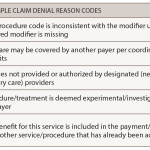In an American Medical Association physician survey, 93% of respondents reported that prior authorization had resulted in patient care delays, with 34% reporting that prior authorization has led to a serious adverse event for a patient in their care.1 The ACR has long advocated for prior authorization reform, seeking to reduce the burden prior authorization imposes on providers and to improve patients’ timely access to care.
These efforts may now be paying off. A bill under consideration in the House of Representatives, the Improving Seniors’ Timely Access to Care Act (H.R. 3173), would streamline the use of prior authorization in Medicare Advantage (MA) plans. As this was written, the bill now has more than 290 cosponsors, a threshold that allows the bill lead, Rep. Suzan DelBene (D-Wash.), to invoke a little-used procedure known as the Consensus Calendar.
Filing a motion to add a bill with such overwhelming support to the Consensus Calendar begins a 25-day countdown after which the bill lead can force action on it. (More on this procedure is available online.)
The bill reached the 290-cosponsor threshold on the heels of the April release of a Department of Health & Human Services’ Office of Inspector General (OIG) report showing that prior authorization requirements in MA plans at times delayed or denied beneficiary access to services that meet Medicare’s coverage requirements. The insurance industry was quick to counter these claims, while several lawmakers pressed for mandated electronic prior authorization.
The OIG analyzed a random sample of 250 prior authorization denials and the same number of payment denials from 15 of the largest MA insurers between June 1–7, 2019. It found that 13% of the prior authorization denials and 18% of the denied payment requests met Medicare’s coverage requirements.
A bipartisan trio of lawmakers—Reps. DelBene, Mike Kelly (R-Penn.) and Ami Bera (D-Calif.)—followed the report with pressure to consider the Improving Seniors’ Timely Access to Care Act through a committee hearing or bringing the measure for a vote.
References
- 2021 AMA prior authorization physician survey. American Medical Association. https://www.ama-assn.org/system/files/prior-authorization-survey.pdf.



